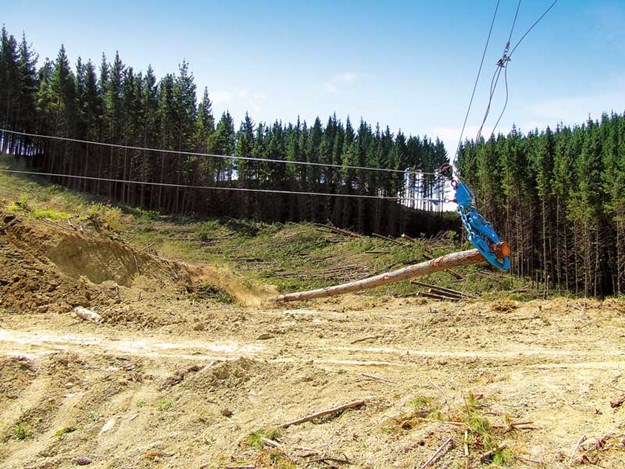Managing mental health in the workplace
How are you going to plan the year to arrive at the next Christmas break in excellent mental health for you, your family, and staff?
Here we are at the start of another year and with the speed and production requirements not about to ease, how are you going to plan the year to arrive at the next Christmas break in excellent mental health for you, your family, and staff?
 |
|
The hardest part is most of us are not trained to recognise the signs or deal with it and the employee will fly under the radar |
The word ‘mental’ conjures up all sorts of thoughts for boomers and millennials, where in days gone past we saw our loved ones institutionalised under horrific conditions because we did not have the expertise to understand the problem. I have looked up the meaning of the word, and there are a few options, but I thought this version appropriate:
"The definition of ‘mental’ is relating to the mind or to problems of the mind. An example of the word used as an adjective is the phrase ‘a mental process’, which means a process that occurs in the mind"
For a logger who works in a demanding industry where weakness is frowned upon, you’re not exempt from what’s now becoming an accepted health issue. Stress in the workplace is now common, and it’s not unusual to read in the news everyday about someone—whether in a high-profile position or an ordinary wage earner, or the unemployed—suffering some form of stress.
The Mental Health Foundation has a programme called ‘Working Well Guide’. The hardest part for an employer is to recognise when one of your employees is suffering from stress.
What has changed in their work day? Has their personality changed? Are they losing weight? Are they complaining about situations at home? Anything that’s different from what has been the normal? The hardest part is most of us are not trained to recognise the signs or deal with it and the employee will fly under the radar to a point where this could turn into depression.
 |
|
Stress in the workplace is now common
|
Logging companies are already loaded with health and safety issues and to think we can add more to the list is a reality through the work of Sir John Kirwan and comedian-turned-mental health advocate Mike King, who, over the last few years, are making it easier for people to talk about such issues and seek help.
Depression is a recognised mental illness. I understand it can affect as many as one in four people in some form or another. More serious cases can lead to suicide or attempted suicide and many of us may have been affected by an acquaintance, friend, or family member committing suicide.
Prior to Christmas, I found out that a client had committed suicide after suffering a lifetime of depression and it got me thinking that we can all play a part in helping prevent such tragedies by understanding the signals and just being there for them should that person need help.
We must remember the average person is not trained to deal with this and in an emergency, dial 111 and they will put you in contact with an agency that can help.
Signs of change briefly are where the person will feel sad and miserable and their mood is persistently low. There are others where there are no signs visible to workmates, as in one case I came across five years ago, where I called into a branch late Friday afternoon to have a quick chat with the manager.
 |
|
Ohope sunset
|
Upon leaving, I said, "Have a great weekend." His response was: "Yeah thanks. I will be going home soon, just have to go to Repco and buy some hose." I never thought about it until Monday when they found him in his vehicle. He had been there since Friday night. The mind is a powerful organ and to have pre-planned his own death without anyone noticing is tragic.
Depression can affect anyone. Many of us may remember some point in our lives where we have fallen into a black hole. Some can pull themselves out of it and learn not to let it happen again. For others, it’s completely treatable, either through doctors and support groups. For the more serious, there’s medication.
Don’t be frightened by the word ‘mental’; it’s accepted in today’s society and is a treatable illness, no different from any other medical problem.
But what about burnout and individual problems of taking on too much work and crumbling under the load? People can often push themselves to greater stress, especially with reducing staff levels and the decision or need to take more of the workload on themselves.
You might have been working 40 to 50 hours a week with the weekends off, but then the demand for more lumber, bigger targets, and tight pricing sees you restricting labour and picking up the extra work yourself and in a short space of time, you find work hours increasing to 60 or 70 hours a week.
Juggling home and work life can often be demanding for both men and women and that often increases the chances of burnout.
 |
|
Burnout can affect more than 5% of the workforce
|
To try and prevent burnout, have regular crew meetings, have one-on-one discussions with all members of the team, keep your finger on the pulse of production, should there start to be fluctuations. Look for the symptoms of chronic exhaustion and mental distance from the job. Burnout can affect more than five percent of the workforce.
The speed that modern society is travelling will continue and we’re hearing more often, even in your own workplace about the boss or the employee taking stress leave. Some managers and employers are clever in manipulating workers to greater production, but if it’s at the expense of your health, then speak up.
Taking pressure home can have a detrimental effect on family and this is unacceptable. This is a two-way street and we all need to be working towards a healthy work environment. A healthy company is productive and financially secure and will make sure we all arrive at the next Christmas holiday in a healthy state of mind.
Find more forestry equipment for sale in NZ
Keep up to date in the industry by signing up to Deals on Wheels' free newsletter or liking us on Facebook.


















